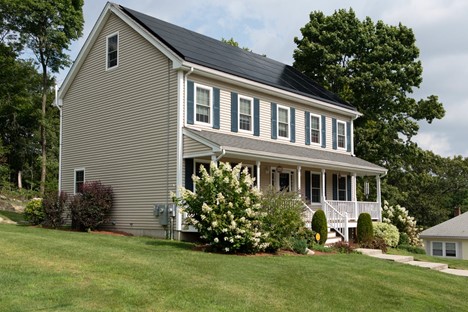Should You Go Solar?

Installing roof solar panels has become an increasingly popular option among homeowners in the United States. Solar panels will convert sunlight into energy, and then you can use that energy to power your home.
While the cost of solar panels has gone down over the years, and increasingly people are installing them, it’s still a significant investment. There’s a lot to consider and both pros and cons to weigh.
Is Your Home a Good Fit for Solar Panels?
Solar panels can work in any climate, but your roof may not be suitable for installation. Tree coverage or age could be two factors making your roof unsuitable.
For example, if trees shade your roof too much, rooftop panels may not be optimal.
In most cases, solar panels work best on south-facing roofs, with a slope up to 40 degrees.
If your roof is old and nearing the time for replacement, this may also make your home unsuitable for solar.
There are alternatives if your roof doesn’t make you a viable candidate for solar panels, including ground-mounted panels or a community solar garden.
When Do You Plan to Move?
If you plan to move in the near-term, solar panels are probably not a good investment.
First, since they are an investment, it can take time to see a return. It usually takes around seven to eight years to pay off the cost of solar panels. If you’re going to move any time soon, not only will this investment not yet have paid itself off, but you may limit your pool of interested buyers when you hit the market.
When your solar system is installed, it is almost impossible to move it to a new location.
How Much Do You Pay for Electricity?
If you don’t pay a lot for electricity each month, then you’re not going to save much with solar panels.
Residents of some states pay more than others for electricity and therefore may find solar panels have more financial benefits for them.
What’s the Weather Like Where You Live?
Weather and, in particular, the sun are the most important things with solar panels. If you live somewhere there’s a lot of cloudy weather or rain, you’re not going to get as many benefits from going solar. If you have long or harsh winters, your solar system is also going to be less productive.
Will You Qualify For Financing?
There are flexible options to help consumers afford the initial, upfront costs of solar panels.
There are financing options, and there are also state and federal tax credits and incentives available.
You should explore what you qualify for. Otherwise, you’re going to pay a lot out-of-pocket upfront and you may not have the cash sitting aside to do that.
Many of the solar financing programs are state-based loans. There are also power purchase agreements and leases available.
Are There Quality Installers Where You Live?
If you live in a bigger city or near a metro, finding solar panel installation professionals may not be a challenge.
However, finding a reputable company can be more challenging in certain parts of the country.
You’ll have to do the research and find a company with a strong background, and also one that’s not going to try pushy sales tactics to lock you into a long-term contract that you might not want.
The Benefits of Solar Panels
While the above are questions to ask yourself, there are benefits of solar panels including:
- Reduced electric bills are one of the biggest reasons homeowners opt to install solar panels. Over 20 years, you could save anywhere from $10,000 to $30,000, depending on where you live and the size of your home.
- Solar panels allow you to be energy independent.
- You can reduce your carbon footprint when you go solar.
- Solar panels are almost entirely maintenance-free.
Solar panels certainly have pros and cons. While they don’t work for every family or home, they can have big advantages in some cases, making them a worthwhile consideration.
